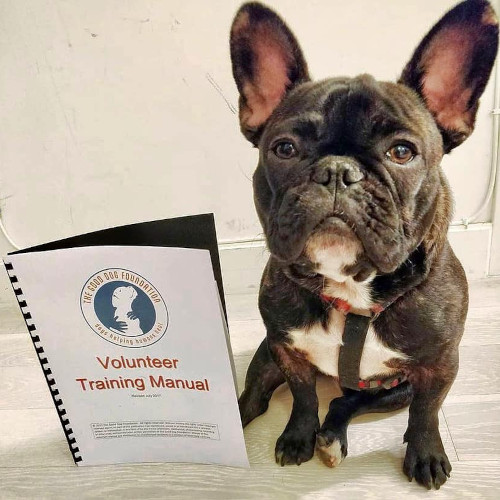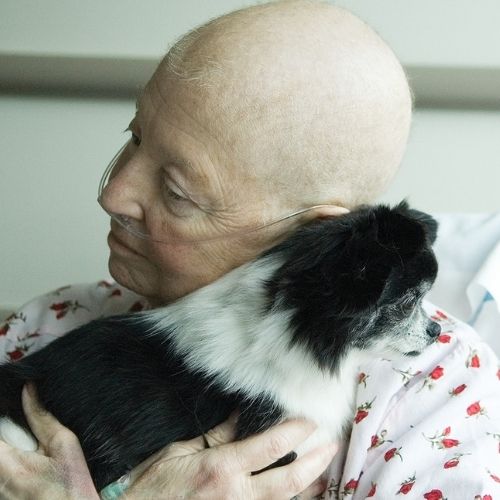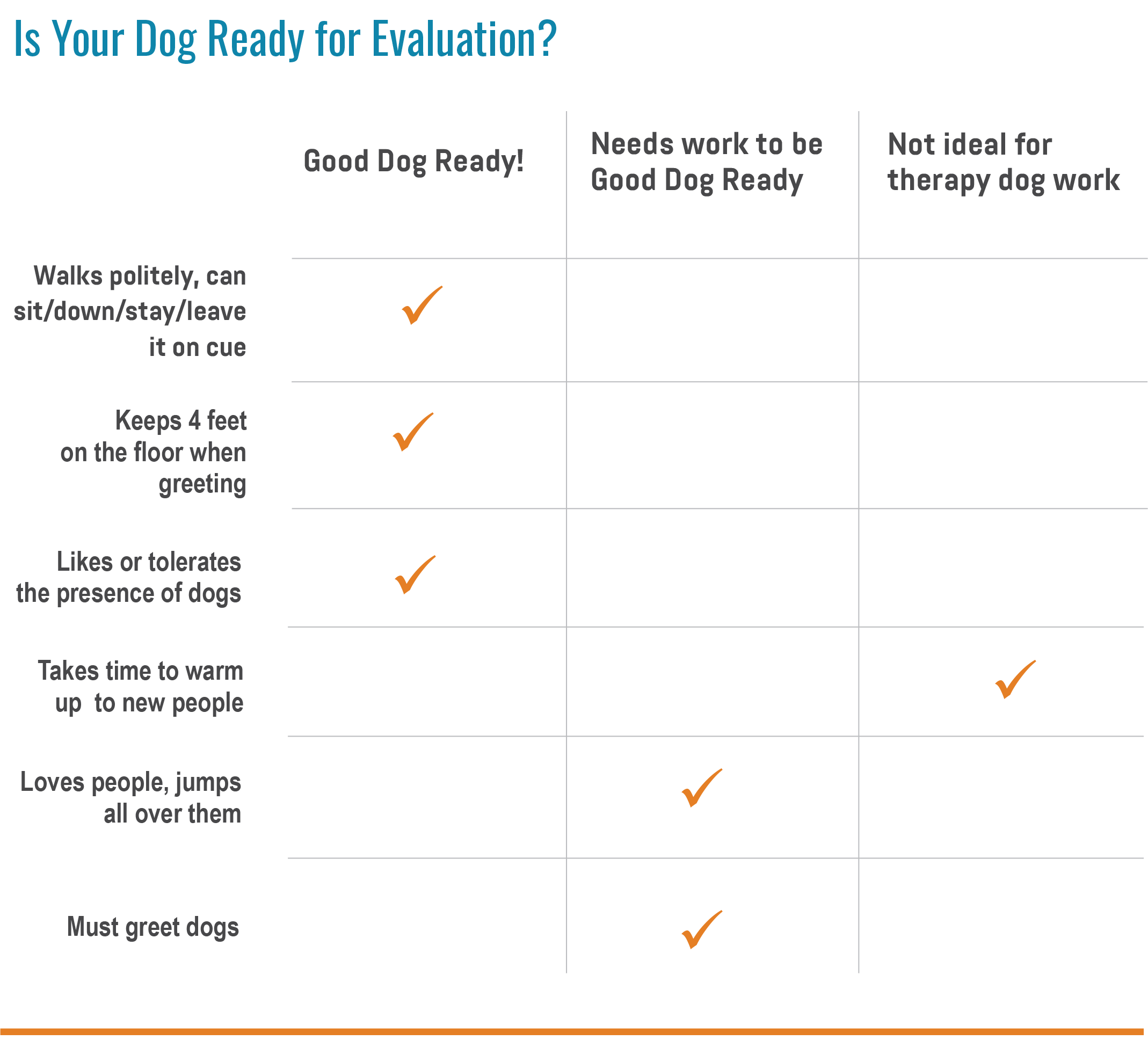Training / Volunteering

Volunteer Certification
Our mission is to teach them how.
- We will train you as a volunteer (if you can donate an hour weekly or monthly) – and teach you to team with your dog to help people in need at schools, hospitals, nursing homes and other facilities across the Tri-State Metro Area.
Good Dog training and deploying methods are globally renowned for best-practices and safety. We are advised by experts in immunology, infectious disease, psychology, veterinary medicine and animal-assisted therapy and conduct vital research to advance therapy dog uses and outcomes.

The Good Dog Difference

Visit Opportunities
- Children on the autism spectrum
- Veterans with PTSD
- Anxious, lonely college students
- Isolated elderly people
- School children needing reading help
- Patients recovering from surgery
- Stressed employees
- And more
How To Be a Good Dog Volunteer
For admission to this course, dogs must have mastered basic obedience skills such as Sit, Stay, Down, and Leave It. Dogs must also walk politely on a loose leash on a flat collar or harness, and they must not jump when greeting people. Handlers must demonstrate control over their dog at all times.


Frequently Asked Questions
Can more than one person be certified with a dog?
Is there an age limit for dogs?
I have two dogs. Can I train them both?
Where do you hold training classes?
Are any of the fees tax-deductible?
Good Dog training class fees, which are a fee for service, are not considered tax-deductible donations by the IRS. Other expenses (veterinary, travel, etc.) that are directly attributable to your Good Dog volunteer work may be deductible for income tax purposes. However, we recommend that you keep detailed records of such expenses and discuss then with your tax professional.
Once my dog and I are certified, can we do therapy visits at my workplace?
If I move, does my Good Dog certification work in other states?
What’s the difference between therapy dogs, service dogs, and emotional support animals?
- A therapy dog is a pet that, in the company of its human handler, helps people in need at hospitals, schools, nursing homes, libraries and community centers during a specific scheduled visit. Therapy dogs do not have privileges or access beyond this function nor any protection or special allowances under federal law.
- A service dog is not considered a pet, but is a working dog that has been specifically selected and trained to live with and assist their human handler/owner in various daily tasks that improve the owner’s functioning and ability to operate independently. As such, service dogs are able to enter all public facilities in a well-behaved manner and are protected under federal law (Americans with Disabilities Act).
- An emotional support animal (ESA) is a pet protected under the Fair Housing Act. An ESA requires a written letter from the individual’s mental health provider that the animal’s presence in the owner’s home is necessary for the individual’s mental health and wellbeing. ESAs require no special training.
Do you have specific Covid-19 policies?
To ensure safety in the wake of the Covid-19 crisis, Good Dog partnered with hospitals and experts in immunology and infectious disease. We defined our visit protocols to meet the challenges of an evolving pandemic, as follows:
- Good Dog therapy dog teams must abide by the policies and procedures of each individual Good Dog partner-facility they visit, including policies on Covid-19 and other health-related issues. The facility being visited is responsible for conveying its requirements in advance to Good Dog volunteers during or before the process of scheduling visits.
Additionally:
- Our volunteers may not enter or remain in a Partner Facility if feeling ill or having cough, shortness of breath, difficulty breathing, fever, chills, muscle pain, headache, sore throat, new loss of taste or smell, or other Covid-19 associated symptoms recognized by the CDC.
- Volunteers who contract Covid-19 or have had close contact with a person who has been diagnosed with Covid-19 are advised to refer to CDC guidelines, which are updated on a regular basis.

